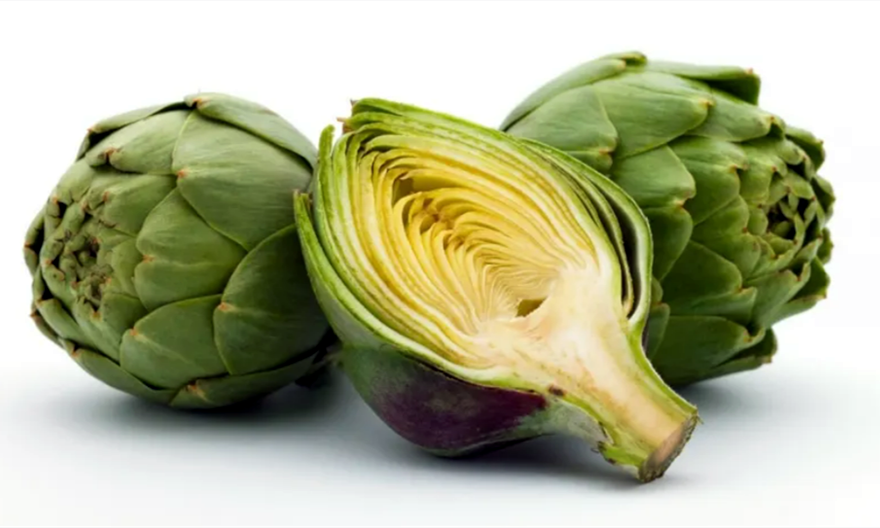Artichoke Cynara cardunculus var. scolymus) is a perennial herb of the genus Cynara in the Composite family, also referred to as French artichoke and green artichoke, which is native to the Mediterranean region. The artichoke we called is actually the bud and flower of a thistle, is completely edible. Studies have shown that artichoke extract contains a variety of compounds such as polyphenols, flavonoids, chlorogenic acid, anthocyanins, terpenoids, cynarin and so on. Artichoke extract is used in tablets, capsules and tinctures to help protect the liver, promote amino acid metabolism, bile production and lower cholesterol as well as aid in the treatment of indigestion. Do you know the other benefits and side effects of artichoke extract? Follow us to read on!
Benefits Of Artichoke Extract
Artichoke extract improves the brain function
The benefits of artichoke extract may include improving your brain function. Artichoke extract contains a compound called luteolin, which inhibits phosphodiesterase activity. Phosphodiesterase degrades nerve signals inside cells and inhibits learning, memory and mood. Luteolin has been shown to inhibit its activity, similar to brain-derived neurotrophic factors. The PDE-4 inhibitor in artichoke extract boosts cAMP levels in the brain, which leads to better memory retention and the enhancement of cognition.
Artichoke extract is good for the treatment of indigestion
Several benefits of artichoke extract have been discovered through the study of the plant’s chemicals. For instance, it contains cynarin, which causes the liver to produce bile, a substance that aids in the digestion of fats and helps break down stubborn food. Artichoke leaf extract is especially effective at increasing bile production, which benefits those with digestive problems. Artichoke has long been used as a remedy for indigestion in Europe.
Artichoke extract is used to treat digestive ailments including abdominal pain, bloating and nausea. Its benefits also extend to those with impaired bile ducts. In a trial involving hundreds of people, people with varying degrees of dyspepsia took artichoke extract for four to six weeks to reduce symptoms such as bloating and nausea. Modern medical research has found that this is due to artichoke extract boosting bile production. In the clinical trial, 20 men with acute and chronic metabolic disorders were randomly divided into two groups. One group was given artichoke extract and the other a control group. The results showed that bile secretion increased by 127.3% after 30min and 151.5% after 60min in the artichoke extract group, which was significantly different from the control group. This means artichoke extract could be used as a treatment for digestive disorders and fat inabsorption disorders associated with insufficient bile production. No adverse effects of artichoke extract were observed in the study.
Artichoke extract is good for liver
There are many other potential benefits of artichoke extract, but one of the most interesting revolves around liver function. That’s contribute to the compound Cynarin, the nutrient protects the liver and enhances its detoxification reactions. Cynarin stimulates the liver to prepare food for digestion and stimulates bile production in the liver, helps digest fat in the liver and helps flush out excess cholesterol. Artichokes are also rich in chlorogenic acids, especially caffeic quinic acid, a polyphenol that has powerful antioxidant properties and can help prevent liver damage by reducing free radical damage to liver cells.
Artichoke extract reduce cholesterol
Artichoke extract can reduce cholesterol levels in the body. It may be best to take it at the point when you begin to feel bloated and nauseous, such as just before you eat a meal. People who are dyspeptic may find it beneficial to take an artichoke extract prior to eating a meal. You can also take dry pills, or use a dropper. Artichokes are a great source of luteolin, an antioxidant that helps prevent cholesterol from forming, this bad cholesterol clogs the arteries. Artichoke extract enters the bloodstream and travels throughout the body, which can reduce the bad LDL cholesterol in the body.
Artichoke extract lower blood pressure
A study of 98 men with hypertension found that daily intake of artichoke extract for 12 weeks reduced diastolic and systolic blood pressure by an average of 2.76 mmHg and 2.85 mmHg, respectively. In addition, clinical studies have shown that artichoke extract powder promotes the enzyme eNOS, which acts to dilate blood vessels. In addition, artichokes are a good source of potassium and Artichoke extract can reduce LDL by as much as 23 percent, which can significantly lower blood pressure.
The Side Eeffect Of Artichoke Extract
However, it is important to note that taking artichoke extract has some side effects. Gallstones may be exacerbated if you have gallstones. Additionally, it is not possible to tell if artichoke extract is working if you do not have gallstones or bile duct obstruction. It is also important to consult a doctor if you have any type of anemia or liver damage, since taking this extract may worsen the condition.
Inflammatory bowel disease is a common side effect of artichoke. Inflammatory bowel syndrome (IBS) is an uncomfortable condition that can affect one-fifth of the population. Artichoke leaf extract can reduce inflammatory markers in the body and reduce symptoms associated with IBS. Artichoke leaf extract is often used as part of a more complete treatment program for irritable bowel syndrome. It is important to follow your doctor’s recommendations and follow a healthy diet while taking the herb.
However, artichoke extract may interact with some medications, including blood thinners. You should consult your doctor before combining this with any other medication, as the combination could cause dehydration. It is recommended to drink water as part of a healthy lifestyle, and artichoke leaf extract complements Racetams, which are nootropics that boost cognition.
- Dandelion Extract: What It Is, Benefits, Uses and Side Effect - April 23, 2024
- Is Berberine Extract Help For Weight Loss? - April 11, 2024
- Why Is Pysllium Husk Powder A Popular Meal Replacement Ingredient? - April 3, 2024


